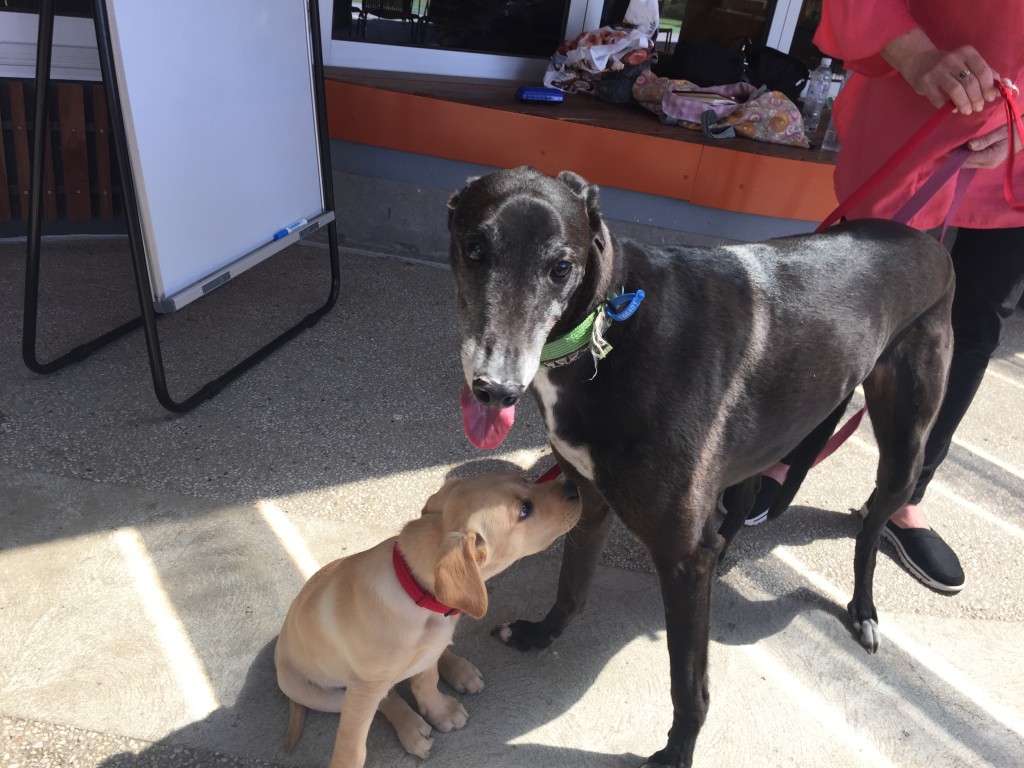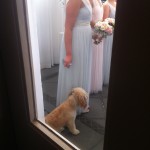Congratulations! You are getting married and you would love your dog(s) to be part of your wedding day, but what now?

Formal Dogs’ wedding service was created to make it easy for you to have your dog(s) as part of your wedding day. So here’s how it works:
Step 1:
Get in touch with us to arrange your free (yup, FREE!) consultation. We will meet with you and your dog(s) in your home so that we can do an assessment of your dog’s suitability to be part of your wedding day. This takes about an hour and a half and we discuss how you want your dogs to be part of your wedding day (as professional trainers and behaviourists we are able to easily assess dogs in an initial consultation). You can contact us easily by clicking here: I want to arrange my free consultation!
Step 2:
After your initial meeting, if you decide to go ahead, we will arrange a quote or invoice for you. To book your date, a $200 deposit is required, with the balance not due until the week before your wedding. Once your deposit is paid, you are booked in!
If your dog requires general training or trick training or behaviour training we will advise costs and time schedules.
Here are some common questions:
Q: What happens on my wedding day?
A: A Formal Dogs trainer will attend at your home and collect your dog(s) prior to the wedding at an organised time, we will look after your dog and transport him/her to the wedding venue leaving time for a walk and play, provide drinks and toilet breaks until the ceremony is ready to start, and then we will help your dog to participate in your wedding as per your instructions.
Q: What happens after the wedding?
A: Usually at this point we will ensure your dog is in the photos that you want him/her in, and then we will transport your dog back to the pre arranged location and ensure he/she is secure and safe when we leave. We will send you a message to let you know your dog has arrived safely at the destination.
Q: I notice you recommend having dogs at the wedding rehearsal, why?
A: A wedding day is a big deal for people and it can be a big deal for dogs too. They have loads of fun, but it is a big day for them. Dogs are sensitive to change, and a lot is going on at home on a wedding day usually, then if they are taken to a new environment it can be a big thing, all those new and exciting smells to smell. So, if we have your dog at your wedding rehearsal we can familiarise your dog with the environment, as well as run through the details of where your dog will sit, who will hold him/her during the ceremony. In my experience (nearly 10 years now) the dogs who attend wedding rehearsals seem much more relaxed on the wedding day. So, I will meet you at the wedding rehearsal, and take your dog from there. You can concentrate on the wedding details and your dog can spend some bonding time with the trainer.
Q: Will my dog have a good time?
A: Yes! Most dogs love new experiences and that is what the initial behavioural assessment is all about, for us to establish that your dog will have a great time with all the new experiences on your wedding day. Sure, they will be tired, (all that sniffing requires energy!) but they will be happy tired and have had an awesome time.
Q: What if my dog gets disruptive or upset?
A: Your dog’s handler is also a trainer and expert in dog behaviour, if we notice your dog is getting distracted or disruptive, we will simply move your dog to somewhere it is more settled, we will have talked to you before hand about how we will minimise the chance of this happening and what we will do if your dog does become unsettled during the ceremony. So far we have not had to take a dog away from a wedding ceremony.
Q: But my dog jumps on everyone!
A: We are commonly complimented on how calm the dogs are at weddings, this is because your dog’s companion for the day is a dog trainer and behaviour expert, it is our job to keep your dog as calm and settled as we can. If you are worried about your dog’s behaviour, we can provide advice at your initial consultation on how to manage it.
If you have any questions about your dog at your wedding feel free to ask. We are the premiere service, and happy to answer any questions for you. We also carry specific insurance to have your dog transported and be a part of your wedding day.
I look forward to meeting you and your dogs!
Ruth Elliott,
Formal Dogs
Get in touch here or call us on 0438 423 230



